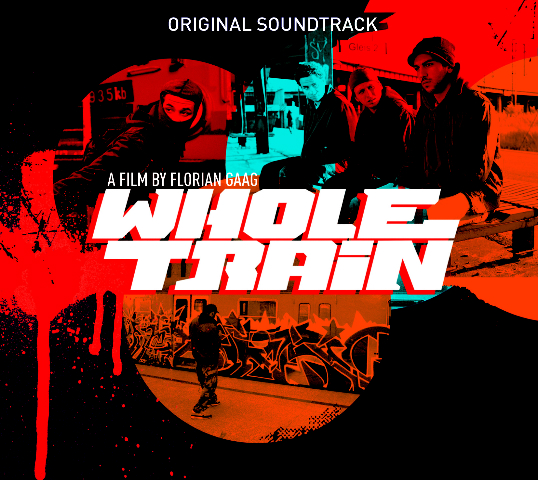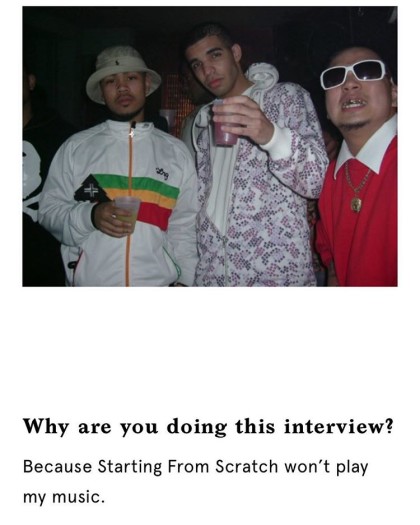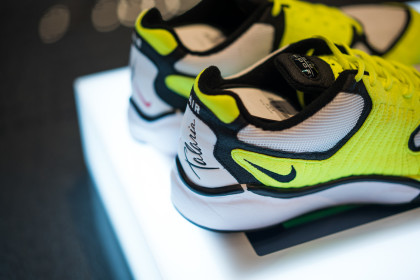
Whole Train Film Review
Whole Train is a German graffiti movie written and directed by filmmaker Florian Gaag. It chronicles a fictional tight-knit urban graffiti crew’s lives throughout risky night-time painting sessions in the forgotten and derelict areas of an anonymous Western-European city.
The city’s train yard becomes a local battleground and drama develop as rival crews attempt to defend their reputation and honour through ongoing turf wars. The stage is set when everyday encounters become heated face-to-face confrontations and adversity is seen on the painted-up sides of the metro cars themselves. The film manages to throw in the looming threat of the law, just for good measure.
Whole Train is absorbing and convincing, maybe because of the high-level acting and minimal dialogue which allows the art to do most of the talking. The visuals, created by established graffitists, are really well-executed in this film. Its portrayal is so engaging that just watching it feels like you’re doing something off-limits.
But even if the writing and directing weren’t so substantial, this movie would still be worthwhile if only for its scenery. Brought to life are the subway systems, low-income housing blocks, out-of-bounds underbelly and industrial zones of the concrete jungle. The soundtrack based mostly off of the sounds of the city itself allowed for great backpack rap from well-known artists such as KRS-One. It also features Akrobatik, El Da Sensei and many other talented musicians. It’s no surprise that Gaag also produced the original soundtrack.
Most interestingly, Whole Train offers a fascinating look at the unique link between art and crime that can only be found in the underground graffiti world. We can only assume that the film is an accurate representation of the politics of the European “writing culture” and Gaag leaves it up to the viewer to decide whether graffiti is thoughtless vandalism or meaningful civil disobedience, legitimate on the premise that it falls under the umbrella of artistic license.
It should be noted that Whole Train goes well with our recently featured article about the turf war between fabled UK aerosol artist Banksy and Team Robbo. Whole Train is further made pertinent in light of the recent death of three Montreal graffiti artists, who were hit by a train while tagging on Halloween weekend.
I dedicate this review to their memory.
Whole Train is a German graffiti movie written and directed by filmmaker Florian Gaag. It chronicles a fictional tight-knit urban graffiti crew’s lives throughout risky night-time painting sessions in the forgotten and derelict areas of an anonymous Western-European city.
The city’s train yard becomes a local battleground and drama develop as rival crews attempt to defend their reputation and honour through ongoing turf wars. The stage is set when everyday encounters become heated face-to-face confrontations and adversity is seen on the painted-up sides of the metro cars themselves. The film manages to throw in the looming threat of the law, just for good measure.
Whole Train is absorbing and convincing, maybe because of the high-level acting and minimal dialogue which allows the art to do most of the talking. The visuals, created by established graffitists, are really well-executed in this film. Its portrayal is so engaging that just watching it feels like you’re doing something off-limits.
But even if the writing and directing weren't so substantial, this movie would still be worthwhile if only for its scenery. Brought to life are the subway systems, low-income housing blocks, out-of-bounds underbelly and industrial zones of the concrete jungle. The soundtrack based mostly off of the sounds of the city itself allowed for great backpack rap from well-known artists such as KRS-One. It also features Akrobatik, El Da Sensei and many other talented musicians. It’s no surprise that Gaag also produced the original soundtrack.
Most interestingly, Whole Train offers a fascinating look at the unique link between art and crime that can only be found in the underground graffiti world. We can only assume that the film is an accurate representation of the politics of the European "writing culture" and Gaag leaves it up to the viewer to decide whether graffiti is thoughtless vandalism or meaningful civil disobedience, legitimate on the premise that it falls under the umbrella of artistic license.
It should be noted that Whole Train goes well with our recently featured article about the turf war between fabled UK aerosol artist Banksy and Team Robbo. Whole Train is further made pertinent in light of the recent death of three Montreal graffiti artists, who were hit by a train while tagging on Halloween weekend.
I dedicate this review to their memory.




